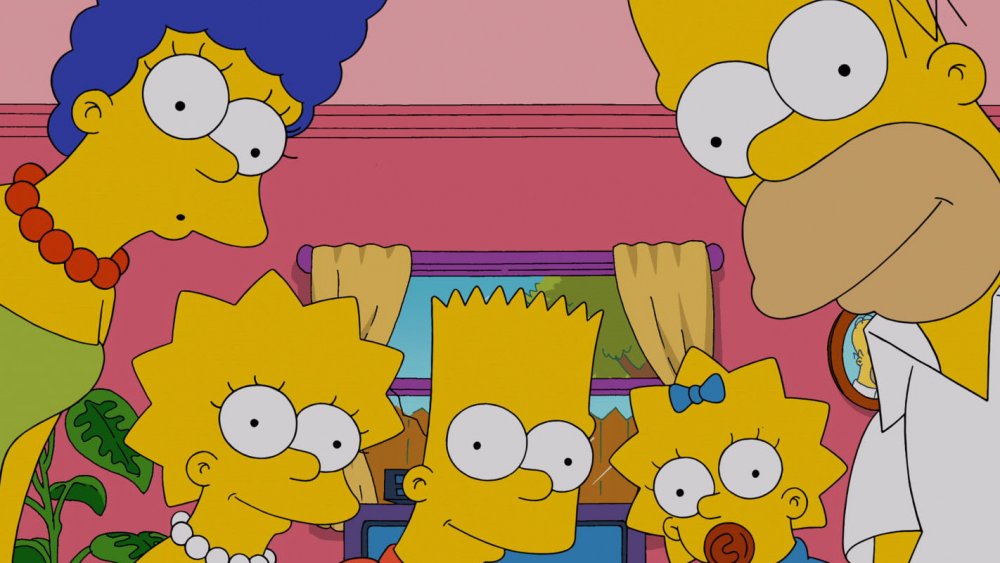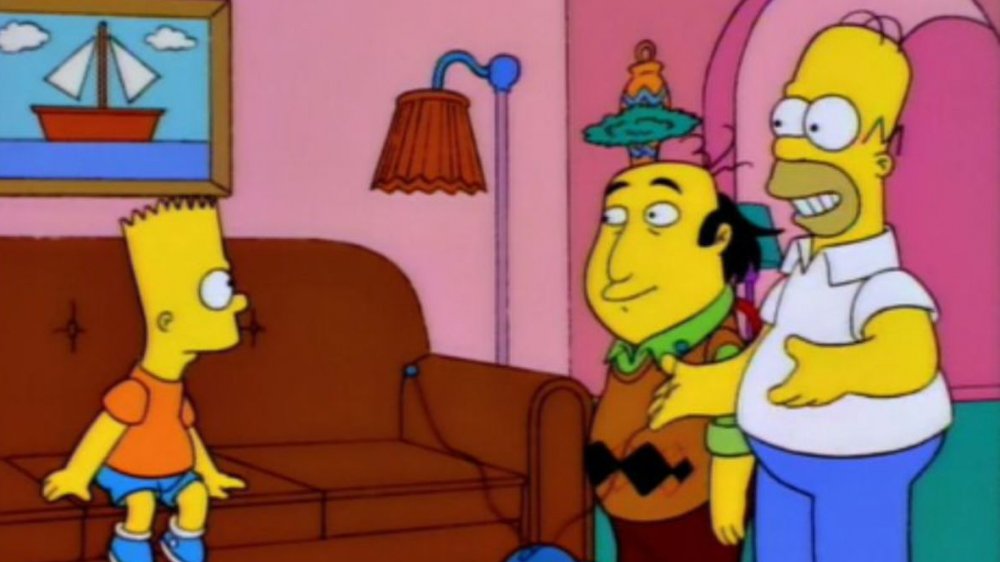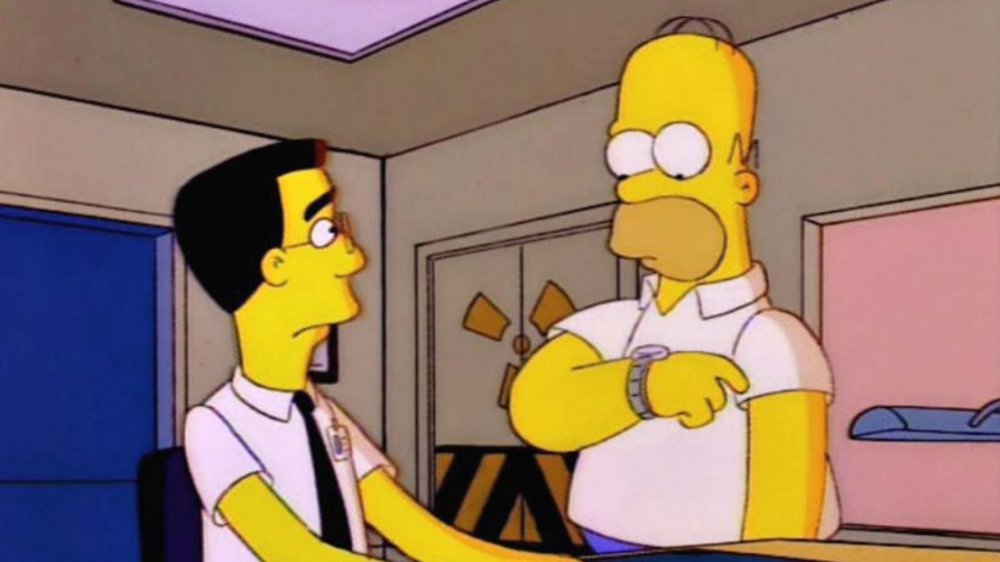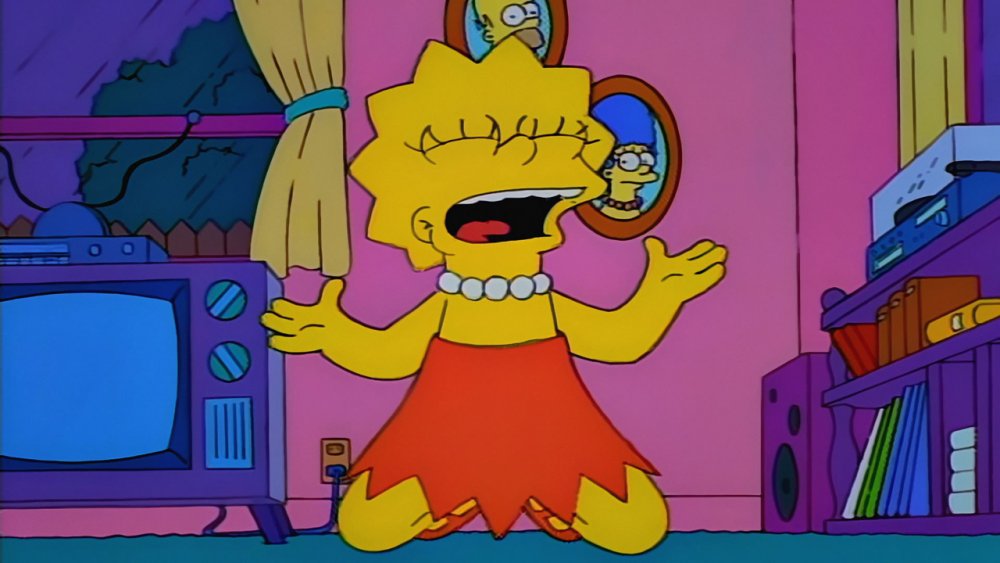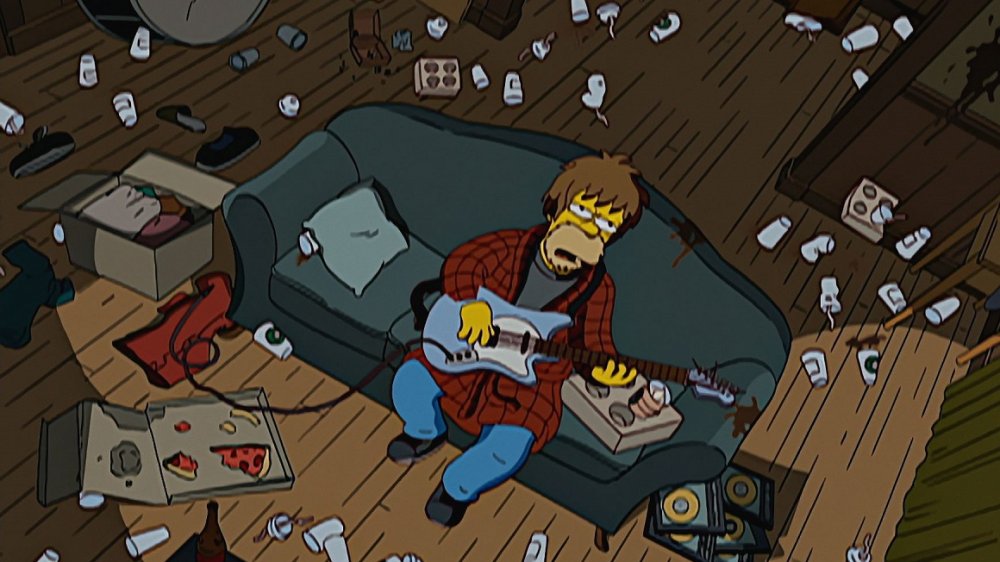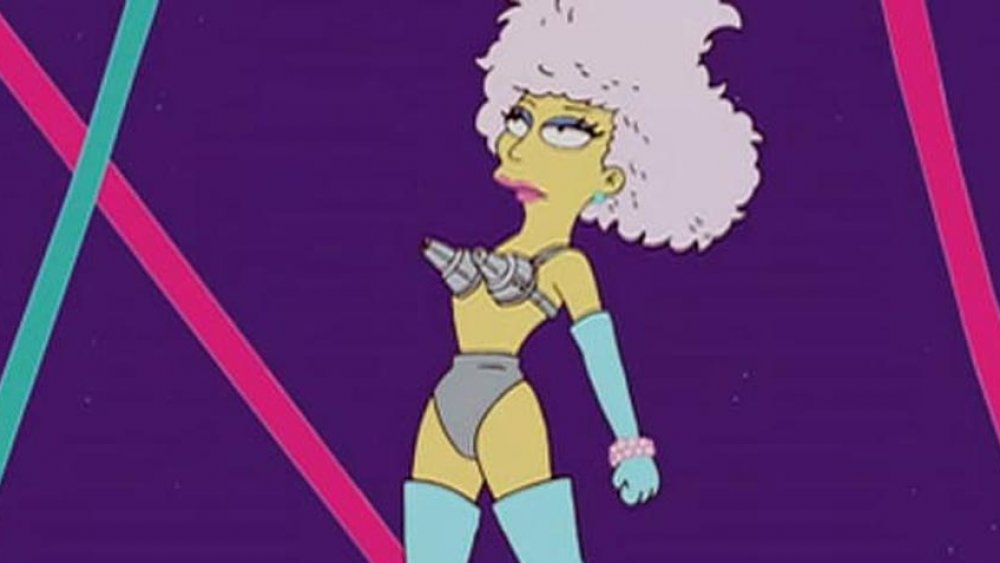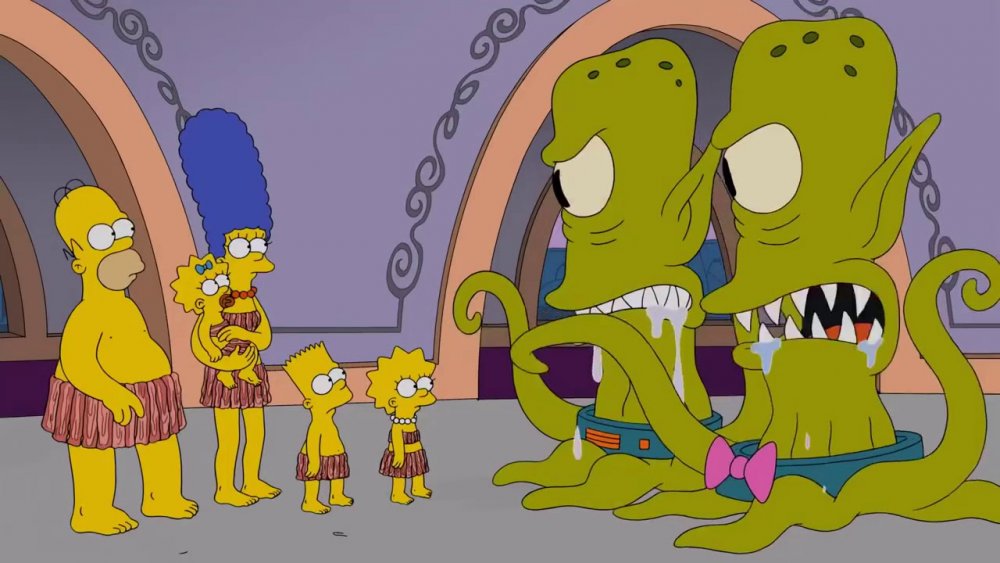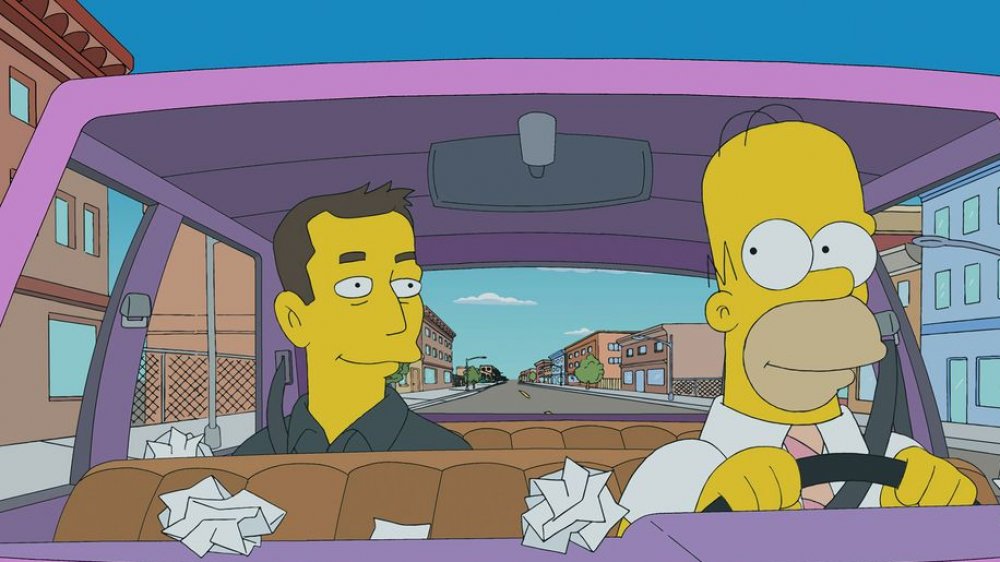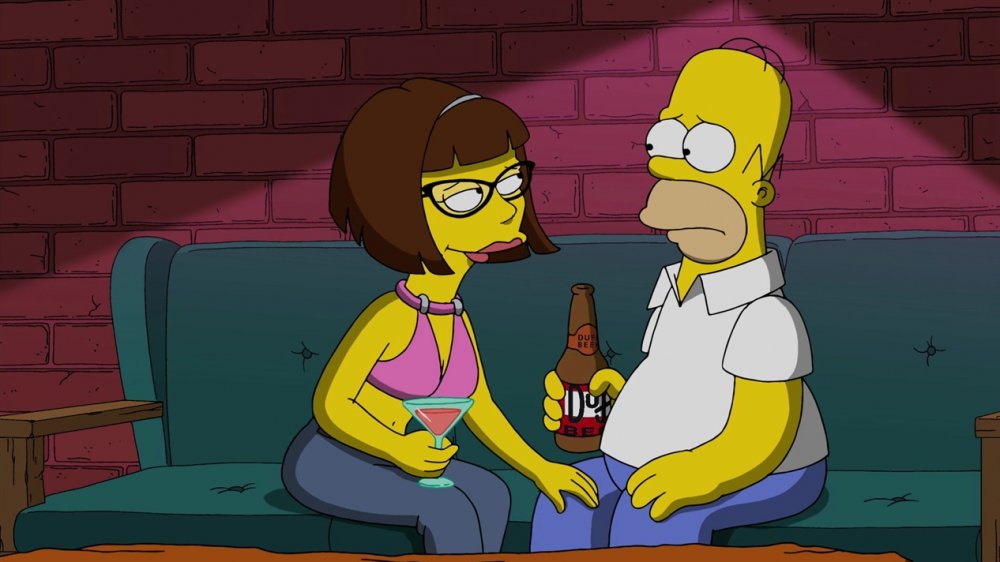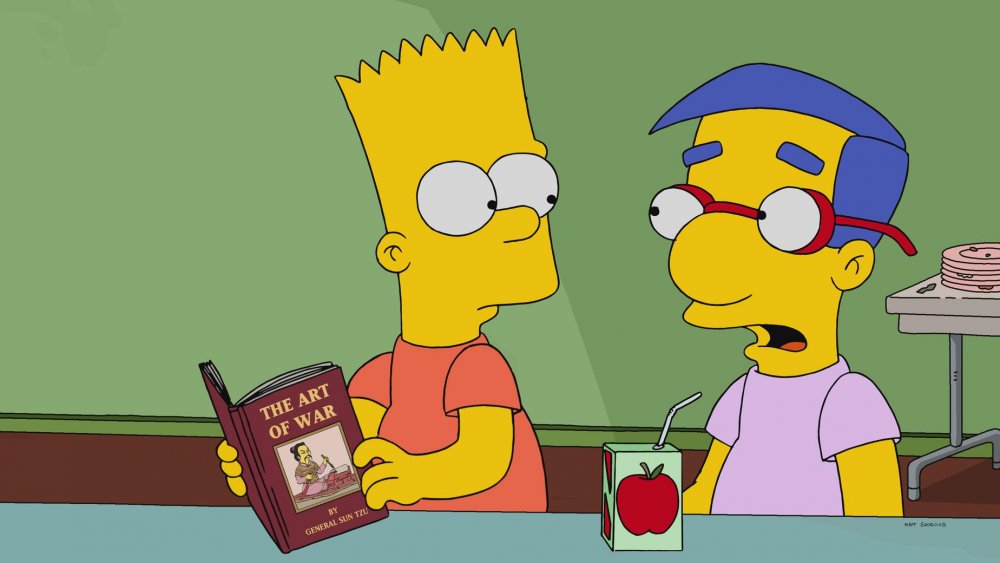Simpsons Storylines That Fans Hated
In the event of a nuclear apocalypse, two things can be assured: cockroaches will reign supreme, and The Simpsons will still be on the air. In their three-decade-plus run, America's funniest cartoon family — Homer, Marge, Bart, Lisa, and Maggie — has been through practically every plot you could think of. Christmas episodes? Countless! Wedding episodes? Too many to count! From monorail mishaps to globetrotting adventures, one can argue that The Simpsons have done it all.
But for all the hilarious jokes, heartwarming moments, and unforgettable characters, it's hard to be on the air for more than 30 seasons without a few plots rubbing fans the wrong way. For every masterpiece of storytelling, there's another episode that might just make you say "D'oh!" From bad guest star appearances to inconsistent character changes and just flat-out bad ideas, our favorite Springfield family has definitely made the fans say "worst episode ever" on more than one occasion. With all that in mind, here's a not-so-fond look back at Simpsons storylines that fans hated.
A Star is Burns
Though the film festival in "A Star is Burns" contains the beautifully tragic Barney Gumble short film Pukahontas and the certainly award-worthy Man Getting Hit by Football, the real drama of this episode lies in one of the central conceits of the script: the introduction of Jay Sherman, New York film critic, to the town of Springfield. Though painted "Simpsons yellow" for the occasion, animation fans might recognize Sherman as the titular character in the mid-'90s series The Critic, created by former Simpsons writers Al Jean and Mike Reiss. Some fans might have thought that a visit from Sherman was inevitable, but Simpsons creator Matt Groening, maybe the biggest "fan" of the show, would have to disagree.
Groening thought that Sherman's presence on the show was just an excuse to promote The Critic, and would lead fans to think that Sherman was another one of Groening's creations (he absolutely was not). Groening's distaste for the crossover gimmick got so heated that he actively pulled his name from the opening credits for this episode — the only time this move has been made in the show's history. A memorable episode for sure, though in Groening's mind, to borrow one of Sherman's catchphrases, "it stinks!"
Homer's Enemy
Oh, Frank Grimes. Or Grimey, as Homer called him, much to Frank's chagrin. At the tail end of The Simpsons' eighth season, this mild-mannered real-world surrogate started working at the Springfield Nuclear Power Plant and almost immediately lost his mind reeling at the earth-shattering incompetence of one Homer Simpson. Frank Grimes cannot bear to live in a world where Homer's laziness, idiocy, and altogether dangerous antics are somehow praised, ignored, or even rewarded by the world around him. It was a splash of harsh reality mixed into the show's DNA, all the more tragic as the episode ends in the tragic demise of Frank Grimes through his own personal incompetence.
The episode still remains intensely divisive among fans, some saying this foray into self-reflection was too dark a turn for the series, others praising the introspective and hilarious nature of the episode. Love it or hate it, "Homer's Enemy" forever remains a much-debated and key moment in the show's history.
The Principal and the Pauper
Springfield's favorite elementary school principal, W. Seymour Skinner had been a mainstay in the academic lives of the town's impressionable youths, most notable for his docile relationship to his mother Agnes and his equal parts hilarious and horrifying Vietnam flashbacks (do not bring up MAD Magazine around him, please). But this early ninth-season episode decided to ask the question no one wanted answered: what if Principal Skinner was an imposter? Guest star Martin Sheen voices the "real" Seymour Skinner, an army sergeant presumed dead whose life was usurped by the "Skinner" we know and love, his real name revealed to be Armin Tamzarian.
Writer Ken Keeler wanted to craft a Simpsons episode commenting on how fan culture is averse to change, though sadly the fan response to this story proved his point all too well, with fans feeling betrayed that a character they thought they had known so well was an utter fabrication. As The Simpsons marched forward, this episode started to raise doubts among the fandom: if they couldn't trust the show's writers to uphold their characters, who could they trust?
All Singing, All Dancing
Like the "bottle episode" or the "wedding episode," the clip show has been a sitcom staple for years; naturally, The Simpsons have dipped into that well on many an occasion over years. While "All Singing, All Dancing" wasn't their first foray into the world of rehashing old clips to save time and money, this "tribute" to past musical moments in the show's history is a perfect encapsulation of why clip shows are often the least engaging and most unnecessary tradition in the world of sitcoms.
A strange attempt to get Homer to love musicals mixed together with a thrown-off side plot involving Snake Jailbird adds up to a half hour of television that fans tend to agree is one of the show's earliest forays into subpar storytelling. Not even a catchy homage to the film musical Paint Your Wagon is enough for this forgettable episode to carry a tune.
That '90s Show
The problem with having a long-running show that exists on a fixed timeline where nobody ages means that your character's backstories consistently become inconsistent. Which is what happened when, in an attempt to have yet another flashback episode about young Homer and Marge, the show transplanted their college days to the 1990s. Alongside some groan-worthy jokes attempting to satirize grunge music, laser tag, and "woke" college professors, the biggest sin of "That '90s Show," at least in the eyes of the fans, was the episode completely bulldozing the entire backstory of the show's central married couple, all in an attempt to find a pocket of humor in an era when the show had already existed. The Simpsons is practically synonymous with the '90s, with ten whole seasons of the show providing more insightful commentary on the bygone decade than this half-hour of television ever could.
Moe Goes from Rags to Riches
In "Moe Goes from Rags to Riches," Moe's bar rag (voiced by Jeremy Irons) comes to life and regales us with its life story. The fact that this one-sentence synopsis wasn't enough for the show's writers to throw it out and go back to the drawing board immediately is as sure a sign as ever that The Simpsons' plots have gotten progressively more far-fetched over the years.
While the show's gags and antics have veered closer and closer to outright cartoonishness, even this was a step too far for fans who saw this as a story too ridiculous for America's favorite cartoon family, not to mention a plot tied to an object that not once was seen as a strong defining characteristic of Moe the bartender. There have definitely been a wide array of Moe Syzlak storylines over the years, but a story about a dirty rag that Moe owns is certainly not one anyone was asking for.
Lisa Goes Gaga
After countless seasons and storylines about Lisa learning to love herself for who she truly is, the show decided to create another storyline about, naturally, Lisa needing to learn to love herself for who she truly is. And the only celebrity who could show her the way is, of course, Lady Gaga! Yes, Lisa becomes a little monster herself as Lady Gaga brings her brand of glam and spectacle to teach the whole town of Springfield how to cure their depression and love themselves for who they truly are. Because they were "Born This Way" and they need to "Just Dance," and anything else that fits into the Lady Gaga Universe.
With "Lisa Goes Gaga," The Simpsons proves — and not for the last time — that building an episode of television built solely around the personality of one particular celebrity just isn't a great means of creating an entertaining comedy show. Fans agree that Lisa's past moments of heroism far exceed the time Gaga rode into town.
The Man Who Came to Be Dinner
What happens when alien siblings Kang and Kodos, mainstays of the annual Simpsons "Treehouse of Horror" episodes, invade an in-canon episode of The Simpsons? Whatever it is, it isn't popular, that's for sure. After a first act consisting of lazily constructed Disney theme park jokes that fall far beneath the show's usual satiric bite, the Simpson family is abducted by the gruesome green alien duo and thrust into an intergalactic adventure that doesn't really feel too adventurous. By the end of things, the Simpsons have their memories wiped so they won't remember a thing, creating a convenient loophole for the already flimsy chronology of the show.
Fans felt "The Man Who Came to Be Dinner" was yet another step too far in removing the show's connection to reality, and all the talk of later Simpsons being inferior was only further underscored by this oddity of a space adventure.
The Musk Who Fell to Earth
Has any episode of The Simpsons dated as quickly as this half-hour advertisement for the alleged wonder and genius of Elon Musk? The oft-discussed, oft-controversial billionaire tech bro's image certainly isn't anywhere near as positive as it was when this episode aired in 2015, depicting Musk as an engineering genius who flies around in rockets and has the technical knowhow of a Jetsons character. Musk (who voiced himself) was drawn to Homer's wacky antics and, inevitably, teamed up with Springfield's very own billionaire tyrant, Mr. Burns.
The Simpsons tends to draw ire from its fanbase when episodes seem to exist for no other reason than to fan the ego of the celebrity at the center of it all, and "The Musk Who Fell to Earth" is certainly no exception, but Musk's more recent public exploits mean that this particular episode has aged worse than most.
Every Man's Dream
We all know Homer can be a little bit of a jerk, but the one quality we can all appreciate about our favorite slob of a husband is that he loves his wife Marge more than anything or anyone. This is why fans were so quick to hate the plot of "Every Man's Dream," during which Homer cheats on his wife with the Lena Dunham-voiced Candace and Marge finds love with a new man. Where season four's "The Last Temptation of Homer" saw Homer resist cheating on his wife in a nuanced, emotional piece of television, this episode outright throws Homer into the deep end of infidelity and has him prove unfaithful to one of television's most beloved marriages.
While even botching this attempt at "shaking things up," the late episode reveal that this has all been a dream of Marge's made fans throw up their hands further, resigning themselves to an utterly inconsequential half-hour of television.
No Good Read Goes Unpunished
For better or worse, one of the more defining moments of recent Simpsons episodes has been the cringe-inducing moment in "No Good Read Goes Unpunished" when Lisa turns to the audience to lecture us, in the least subtle of ways, about how criticizing the show for its past mistakes is a bad idea.
Seen as an attempt at responding to recent, louder criticisms of the show's past treatment of the Indian character of Apu Nahasapeemapetilon, the show's response was to shrug its animated shoulders and say "What can ya do, y'know?" This was all couched in a story about Marge refusing to accept that her favorite childhood book was pretty racist, alongside a story about Bart using the book The Art of War to make Homer do his bidding. With "No Good Read Goes Unpunished," The Simpsons failed to tell a story that had any satirical bite — and worse, it wasn't even funny.
